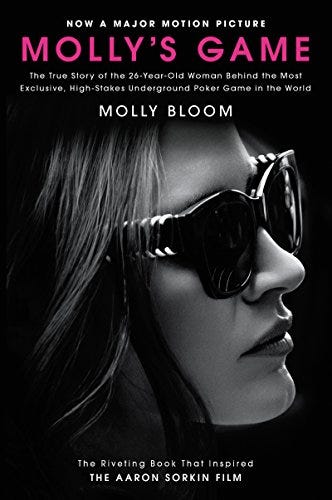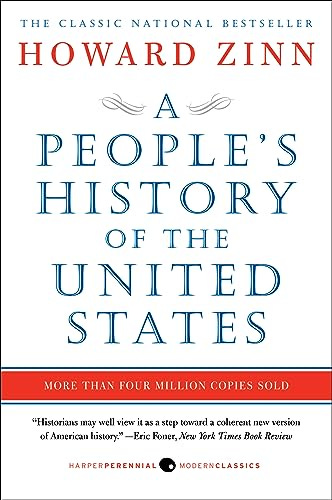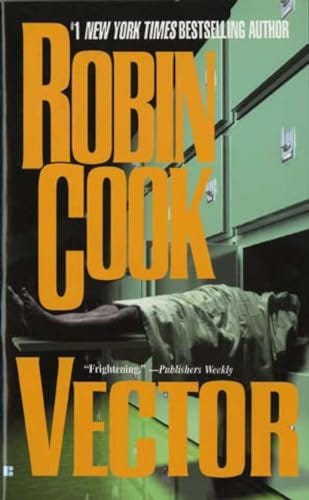How a Missed Flight, a Batting Cage, and a Friendship Became the Best Decision I Never Planned
Three books can change your Thursday. One book can change your world.
Hello,
Back in 2011, a close friend of mine—David Mishkin, someone I worked with at Detroit Receiving Hospital—texted me with an offer I couldn’t pass up: 50-yard line tickets to a Monday night Miami Dolphins game. He knew I was a die-hard Dolphins fan. I had never been to an NFL game, so I planned the trip around an overnight ER shift. I’d finish at 7 a.m., head straight to the airport, and catch some sleep on the plane.
I still remember that shift. A trauma rolled in at 5 a.m., and I wasn’t sure I’d make it. But we stabilized the patient, got him to the OR, and I made it to DTW airport just in time. I walked to the gate as the boarding process began. But just before I scanned my ticket, my phone rang.
It was my wife. Our babysitter had canceled. My wife—who had just started her faculty role at Wayne State University—needed to teach her class. And there was only one person left to watch our kids: me.
I didn’t board the plane.
I turned around, went home, and never made it to the game. I called my friends to apologize, but I don’t think they ever fully believed me. Maybe they thought I flaked. I felt awful about it for years.
So when David called again almost nine years to the day—this time with tickets to a Dolphins game in November 2022—I jumped at the chance. Not just because I still hadn’t been to a Dolphins game. But because I wanted to prove I’d show up. I’d make good on the trip.
David mentioned something almost as an afterthought: “Bring Rhys’s glove and bat. There’s a guy down here who gives hitting lessons.”
That guy turned out to be Brandon Brewer—an assistant coach at the University of Miami. What started as a casual training session turned into something far more meaningful.
We flew down, just Rhys and me. We played catch with David and his sons, hit ground balls at a local park, and then headed to the University of Miami for that first lesson. Brewer spent two hours with Rhys—and taught him more than he’d learned in two years. There was magic in it. You could feel it.
That night we went to the Miami Heat game. Sunday we finally made it to the Dolphins game. And the rest of the weekend—New York–style pizza at Miami’s Best, nitrogen ice cream at Chillin, sunshine, laughter—was pure joy.
But here’s the thing: that weekend wasn’t the destination. It was the beginning.
Since then, Miami has become a second home. We’ve returned dozens of times, each visit anchored by baseball training but expanded into something much bigger. A rhythm. A tradition. A joy.
It’s been three years now—of early Saturday mornings on the field, of pizza and ice cream and university t-shirts, of watching U Miami baseball games and being welcomed like family. And that’s what it’s become. A family. One we never expected.
And it’s all because of two people: David Mishkin and Brandon Brewer.
Their invitation, their presence, their generosity—changed our lives.
David reentered my life just when I needed it. Brewer showed up for Rhys in ways that shaped not just his swing, but his confidence, his path, his future.
From one phone call, one missed flight, one unexpected batting lesson—came a cascade of moments that shaped our family. That formed friendships that will last a lifetime.
That’s the beauty of life, isn’t it?
You think you’re going for the football game. Turns out, you’re showing up for something much bigger.
Welcome to this week’s Three Book Thursday.
1. Memoir
Molly's Game: The True Story of the 26-Year-Old Woman Behind the Most Exclusive, High-Stakes Underground Poker Game in the World
Summary
Molly’s Game is one of those books that grabs you from the first page and doesn’t let go. It’s fast, sharp, and wildly entertaining—but behind the glamour and chaos is something deeper: a story of ambition, resilience, and reinvention.
I didn’t expect to be so inspired by a story about underground poker rooms and Hollywood elites. But Molly Bloom isn’t just a former Olympic hopeful who built the most exclusive, high-stakes poker empire in the world—she’s a force of nature. She had an instinct for people, a hunger to succeed, and the kind of courage that shows up strongest when everything falls apart.
This was such a fun, addictive read—and the movie adaptation? Outstanding. But what really stayed with me was Molly’s refusal to quit. She could’ve taken an easier route. She could’ve betrayed her players, taken deals, sold out. Instead, she stood her ground. She took the hit. And then she started again.
Molly’s Game is more than a tell-all. It’s a blueprint for how to carry yourself when the stakes are high and the spotlight is blinding. It’s about betting on yourself—not just when you’re winning, but especially when you’re not.
If you’ve ever had to pivot, rebuild, or prove yourself in a room where no one expected you to belong—this one will speak to you.
Favorite Quote, Insight, & Principle
Quote: “Everyone’s life is either a warning or an example—mine is both”
Insight: Poker is much more than a game. It's a strategy for life. If you are going to be a risk taker, make sure you're taking calculated risks.
Principle: People will pay a fortune to feel powerful—but they’ll betray you for free
Author: Molly Bloom
Themes: Memoir, Gambling, Growing a business
2. History
A People's History of the United States
Summary
A People’s History of the United States doesn’t read like the history books I remember from school.
It doesn’t celebrate conquest. It doesn’t let power go unchallenged. Instead, it flips the script—putting the voices of the marginalized, the workers, the dissenters, the forgotten, front and center.
I first heard about the book in college, thanks to the movie Good Will Hunting. There’s a scene where Will, played by Matt Damon, says: “You wanna read a real history book? Read Howard Zinn’s ‘A People’s History of the United States.’ That book’ll… knock you on your ass.” So I read it.
And he was right.
The book is dense. It’s heavy. It’s not something you breeze through on a Sunday morning with coffee. But it’s worth every page. Zinn doesn’t just tell you what happened—he asks you to question who’s telling the story. He walks you through the Revolutionary War, the Civil War, the labor movement, the civil rights era—not through the eyes of generals and presidents, but through the people who lived in the shadows of those decisions. The coal miners. The enslaved. The immigrants. The activists. The people who usually get a footnote, if they’re mentioned at all.
Reading it gave me something I didn’t know I needed at the time: a reminder that truth depends on perspective. That history is not just about what happened, but who tells it. And that the voices on the margins often carry the clearest vision of justice.
That lesson stuck with me. It’s shaped how I see medicine, how I approach business, how I try to parent and lead. It reminds me that in every room, every team, every system—there are perspectives not being heard. And if you want to make good decisions, or just be a better human—you need to make the effort to hear them.
A People’s History doesn’t give you a feel-good story. But it gives you something better: the full story. One that forces you to see the complexity of progress. One that challenges you to pay attention to the people history usually leaves behind.
Favorite Quote, Insight, & Principle
Quote: “There is no flag large enough to cover the shame of killing innocent people”
Insight: If those in charge of our society — politicians, corporate executives, and owners of press and television — can dominate our ideas, they will be secure in their power.
Principle: Small acts, when multiplied by millions of people, can transform the world.
Author: Howard Zinn
Themes: History
3. Fiction
Vector
Summary
I still remember the class—an elective in college on bioterrorism. We were assigned Vector as part of the syllabus, and to be honest, I didn’t expect much. Up to that point, I hadn’t read much fiction, especially not cover to cover. But this one grabbed me. I tore through it. It became the first fiction book I ever finished in full during college—and it opened the door to an entire genre I’ve come to love. Medical thrillers. The line between science and story. Truth and terror. And Vector has stayed with me ever since.
Robin Cook, a physician-turned-author, has made a career out of crafting stories that sit at the intersection of medicine, ethics, and public fear—and Vector delivers all of that with intensity.
The premise is chilling: a former Soviet bioweapons technician defects to the U.S. and finds himself disillusioned, angry, and underemployed. He partners with white supremacists and extremists in New York City to unleash a biological attack—anthrax, precisely delivered. What makes this story terrifying isn’t just the science—it’s the psychology. It’s how quiet, fringe anger can turn into coordinated destruction. It’s how disinformation, ideology, and resentment can merge with expertise to create something lethal.
What struck me then—and still does—isn’t just the science (which is spot on), but the vulnerability. How thin the line is between safety and catastrophe. How easily a system can be breached not by a villain in a lab, but by someone hiding in plain sight.
But Vector isn’t just a thriller. It’s a cautionary tale. A reminder that knowledge is neutral—it’s how we use it that gives it power. That science, without ethics, can be weaponized. And that protecting the public requires more than protocols—it requires people who are willing to pay attention, ask hard questions, and act fast.
Vector is a compelling reminder that the quiet things, the overlooked things, the things no one wants to imagine… are often the ones we need to understand the most.
This was the book that made me realize fiction can teach us something real.
And that thrillers—when done well—don’t just entertain us.
They wake us up.
Favorite Quote, Insight, & Principle
Quote: “The truth doesn’t care about politics, comfort, or opinion—it just waits to be discovered.”
Insight: In a world driven by science, ignorance is the most dangerous pathogen
Principle: The scariest part of evil is not its size—but its subtlety
Author: Robin Cook
Themes: Fiction, Science fiction
Sometimes the biggest shifts in our lives don’t announce themselves. They arrive as a text message. A missed flight. A weekend trip that wasn’t supposed to mean anything.
But then something—or someone—changes the course.
This week’s stories all speak to that truth. A poker game that became a life’s turning point. A forgotten voice in history that reshaped how we understand justice. A fictional thriller that pulled real fear into focus.
And a football game that wasn’t really about football at all.
It’s a reminder that meaning often hides inside the moments we almost overlook.
So say yes. Take the trip. Follow the thread.
Because sometimes, what looks like a detour is actually the beginning.
Always ❤️📚💡
Three Book Thursday is free, but there are many costs to create these posts each week. So, can you do me a favor?
If you find value here, please support the newsletter.
Please share Three Book Thursday with a friend, college, family member, or post it to your socials. I’m working hard to grow this audience, but let’s be honest—you’re probably better at it than I am.
Or, do both!







This one is great. Thanks for sharing, Adam